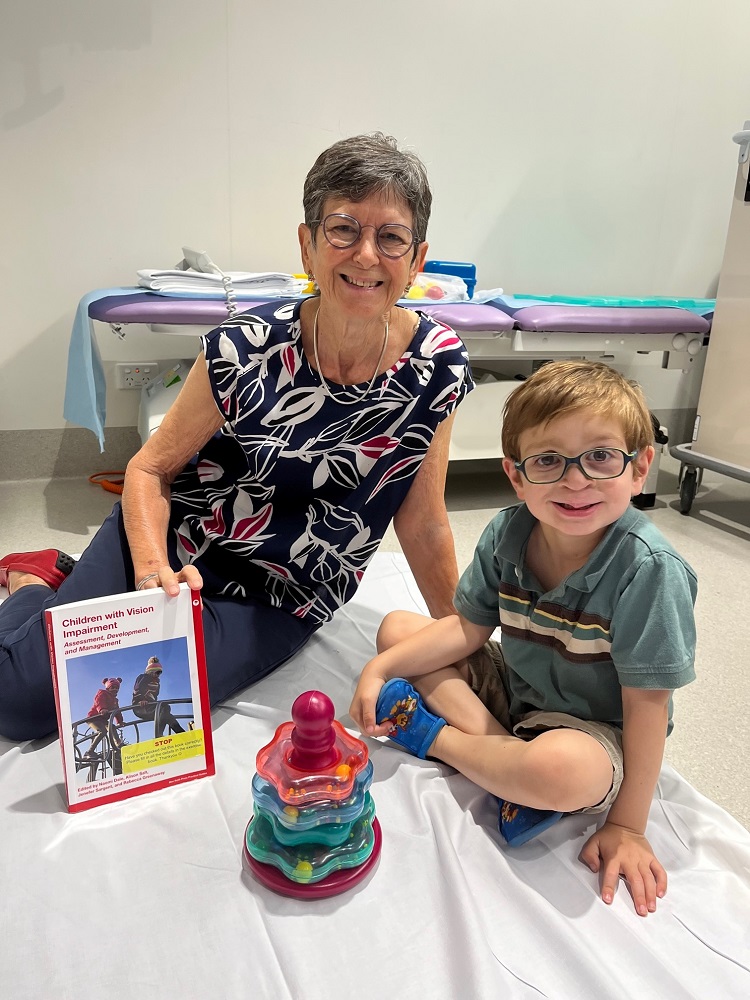Maximising potential by understanding the link between childhood vision impairment and development
 Dr Alison Salt pictured with PCH patient Matthew
Dr Alison Salt pictured with PCH patient Matthew
13/02/2023
Recognising the health and developmental issues that can occur with childhood vision impairment is crucial according to an international expert in childhood vision.
Consultant Paediatrician in Kids Rehab WA at Perth Children’s Hospital (PCH) and Clinical Associate Professor at the University of Western Australia Dr Alison Salt has co-authored a book based on her extensive experience with the Developmental Vision Service at the Great Ormond Street Hospital for Children in the United Kingdom (UK).
“Children with Vision Impairment” incorporates more than 4 decades of experience from clinician researchers at the Developmental Vision Service in collaboration with leading experts around the world.
This landmark publication aims to support health professionals working with visually impaired children and parents, some of whom contributed to the book.
Dr Salt said one of the key messages was the importance of supporting parents as early as possible to help their babies who have a visual impairment reach their full potential.
“Every aspect of a child’s development including their movement, sound location, language and social development is driven by vision.
“It’s therefore important to view vision impairment in a broad developmental context and consider how to address potential vulnerabilities,” Dr Salt said.
She said the authors hoped to promote a positive message to all those supporting children with visual impairment.
“Despite the challenges these children face, they can develop alongside their peers and achieve remarkable things.”
Dr Salt brings the experience of working with more than 10,000 children with rare vision conditions over the course of her long and esteemed career in the UK and Australia to her role at PCH where she works with the early intervention service for children at high risk of developing cerebral palsy.
She is also an honorary research fellow at the Great Ormond Street Hospital for Children, an Honorary Associate Professor at the Great Ormond Street Institute of Child Health and a former paediatric consultant at Moorfields Eye Hospital in London.
The ground-breaking early intervention program (The Developmental Journal for Babies and Children with Visual Impairment) she helped pioneer at the Great Ormond Street Hospital for Children has become a gold standard internationally.
Margaret Boettcher said her family felt “very lucky” to have benefited from Dr. Salt’s expertise and insights into childhood vision impairment.
“Her care of my son Matthew has set up him up for a life that is not defined by his vision impairment,” she said.
Dr Salt said she has been privileged to work with so many families and children with rare visual disorders.
“Our research highlights that early support for parents and their baby at their time of greatest vulnerability can reduce stress for parents and better outcomes for their children,” she said.
Further information about the consumer aspect of ‘Children with Vision Impairment, Assessment, Development and Management, a Mackeith Press Practical Guide’, can be found at https://www.mackeith.co.uk/blog/mkp-author/holly-tuke/
Last Updated:
13/02/2023

